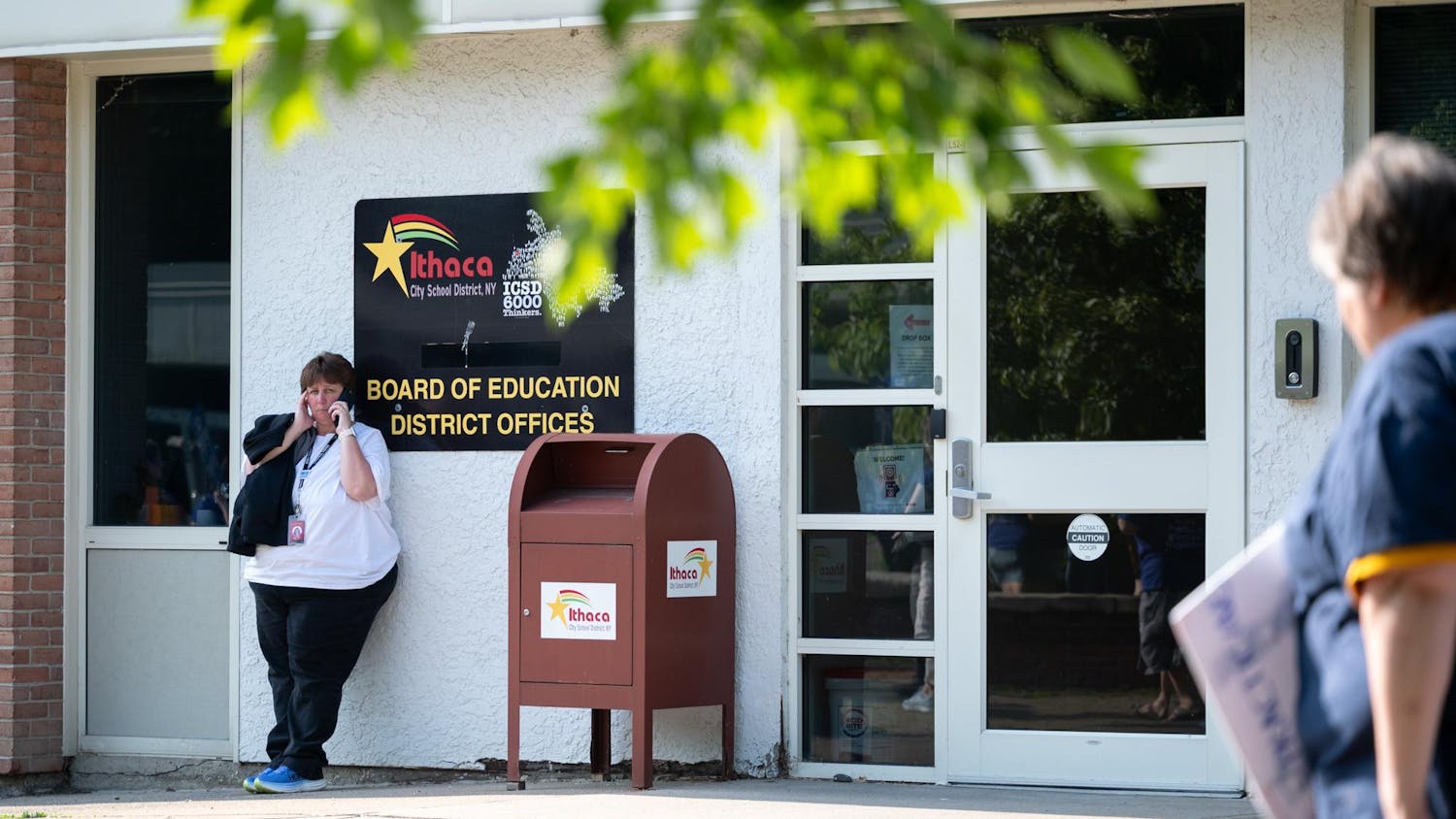In 2022, Republican Rep. Marcus “Marc” Molinaro (R-NY) beat out Democrat Josh Riley for New York’s 19th Congressional seat by just 4000 votes.
In this upcoming election, the two are going head to head once again, and Molinaro is determined to keep his seat.
After many attempts to get in contact with Molinaro, his campaign team shared a statement from the representative that read: “Josh Riley thinks Cornell students are stupid.”
“On Israel, he's trying to play both sides and on his open border policy — Josh can't explain why he'd let fentanyl poison students or let cheap illegal immigrant labor steal post-grad jobs,” the statement read. “I'll always tell you where I stand: I'm pro-border security, pro-American jobs and pro-Israel."
Born in Yonkers, New York, Molinaro has been involved in state politics since he was a teenager. At just 18 years old, Molinaro was elected the mayor of Tivoli, New York, earning him the title of youngest mayor in the U.S. at the time.
Since then, Molinaro represented the 103rd district in the New York State Assembly in 2006, was a Dutchess County executive in 2011 and ran for governor of New York in 2018. In 2022, he won the race for New York’s 19th Congressional seat in the House of Representatives, and he plans on keeping it.
"I will work every day to be a worthy member of Congress for both those who did and did not vote for me,” Molinaro told Spectrum News. “We have a lot of work ahead of us, but I’m ready to hit the ground running."
In a press release about the unveiling of the 2024 Farm Bill, Molinaro emphasized that he was focused on solving the unique challenges constituents in rural areas face.
For instance, in 2023 he introduced the Bipartisan Combating Rural Inflation Act, which aims to create a rural-specific Consumer Price Index to better reflect inflation and cost-of-living increases in these communities. This would allow for more accurate adjustments to food assistance programs, Social Security and veteran benefits.
“We know the cost of living is still on the rise. But for rural communities, it could be even worse,” Molinaro stated in another press release. “Rural New Yorkers should never be the afterthought. My bill creates a rural inflation metric so cost of living increases in rural communities are thoroughly accounted for and considered.”
Historically, Molinaro has stated he is “personally pro-life” and has voted according to that position.
In 2023, he voted for the Born-Alive Abortion Survivors Protection Act which mandates that if a healthcare provider is present during an attempted abortion, they must care appropriately in the very rare instance when there is a premature birth.
According to VoteSmart data from 2023, the Planned Parenthood Action Fund gave a 9 percent rating in recognition of his opposition to policies supporting abortion access. The National Right to Life Committee rated him at 100 percent in support of pro-life causes.
Though he has never publicly supported a national abortion ban and believes that exceptions such as rape and incest should be accounted for, in recent months he has more dramatically shifted his communication about a woman’s right to choose.
In August, Molinaro’s campaign ran an ad in which he stated, “I believe health decisions should be between a woman and her doctor, not Washington.”
Last spring, when pro-Palestinian protests on college campuses faced congressional scrutiny, Molinaro co-sponsored a bill that condemned the support of Hamas, Hezbollah and other terrorist organizations at institutions of higher education and voted for a bill that denounced antisemitism on university campuses.
Molinaro also attended Cornell’s “Pro-Israel Rally” hosted by the End Jewish Hate movement in partnership with Cornellians for Israel last spring.
Molinaro voted “yes” on a 2023 act that prohibits school athletic programs from allowing individuals whose biological sex at birth was male from participating in programs for women or girls. He also co-sponsored the Parents Bill of Rights Act, which amongst other requirements, ensures that parental consent is received before a minor child’s gender markers, pronouns or preferred names on school forms.
In New York State, U.S. citizens 18 years of age or older who have been residents of the state for at least 30 days and do not claim the right to vote elsewhere are eligible to vote as long as they are not currently incarcerated for a felony conviction, ruled “mentally incompetent” by a court or simultaneously claim the right to vote in another state.
All full-time Cornell students on the Ithaca campus will have reached the 30-day eligibility mark by 2024 Election Day on Tuesday, Nov. 5.











